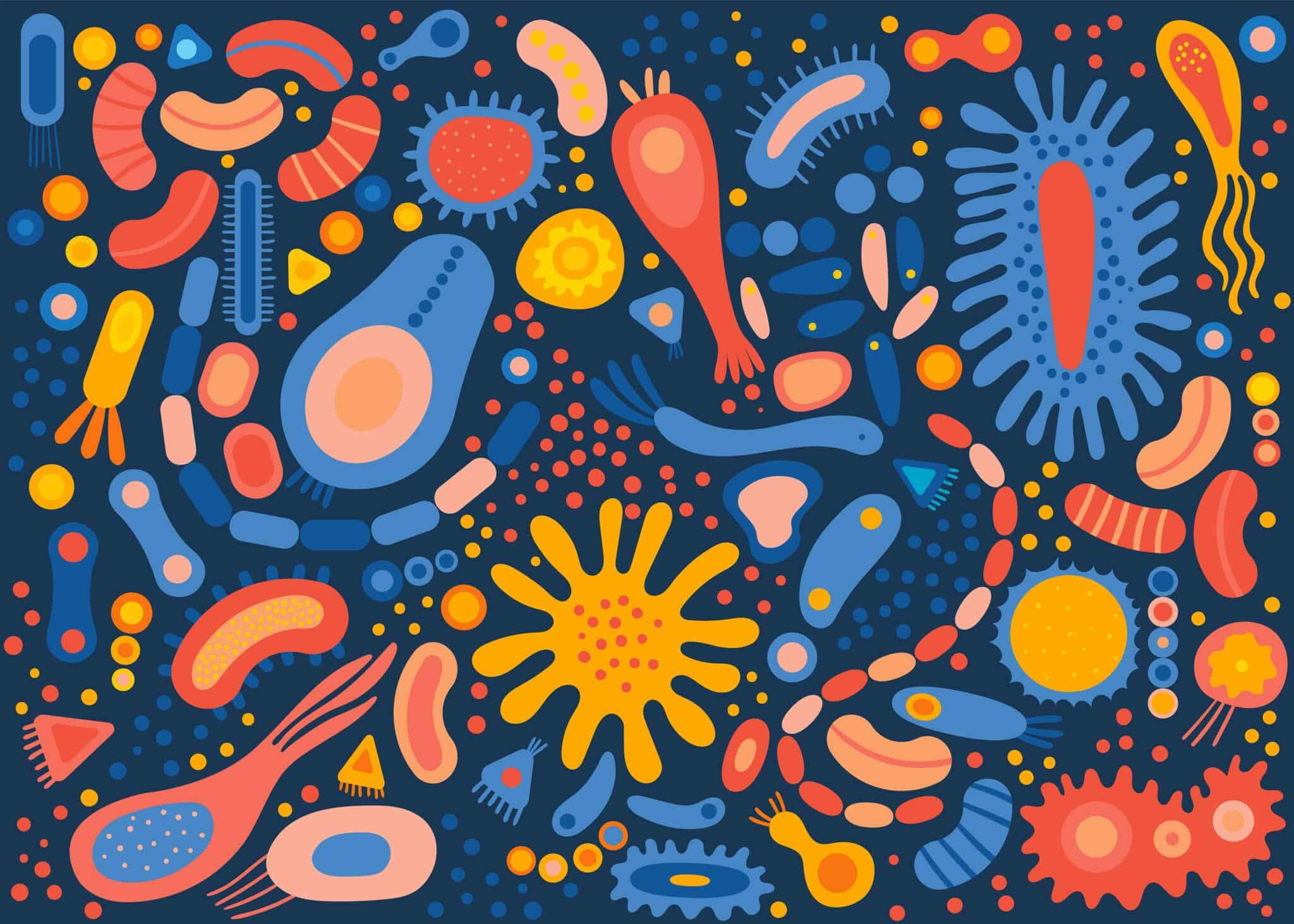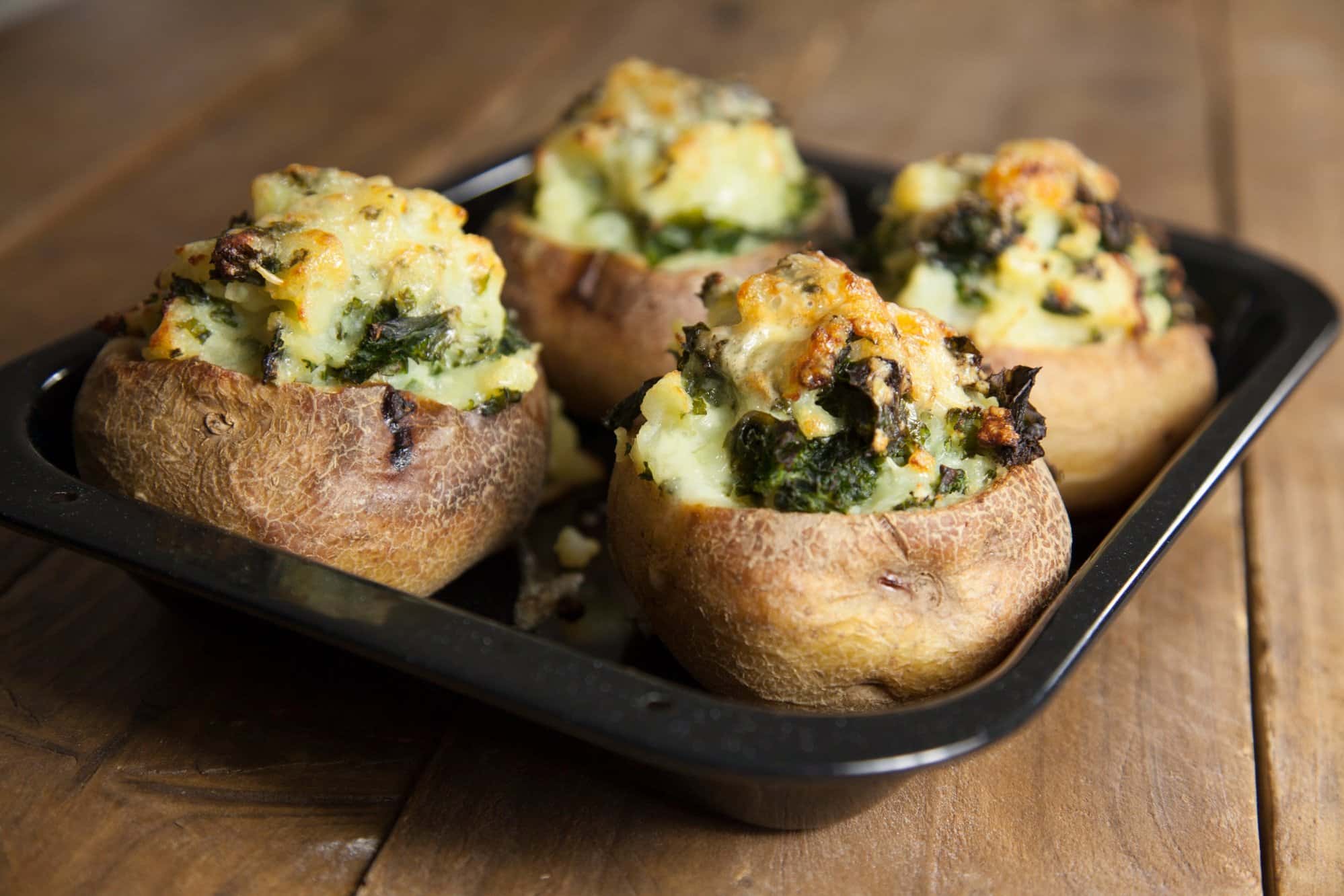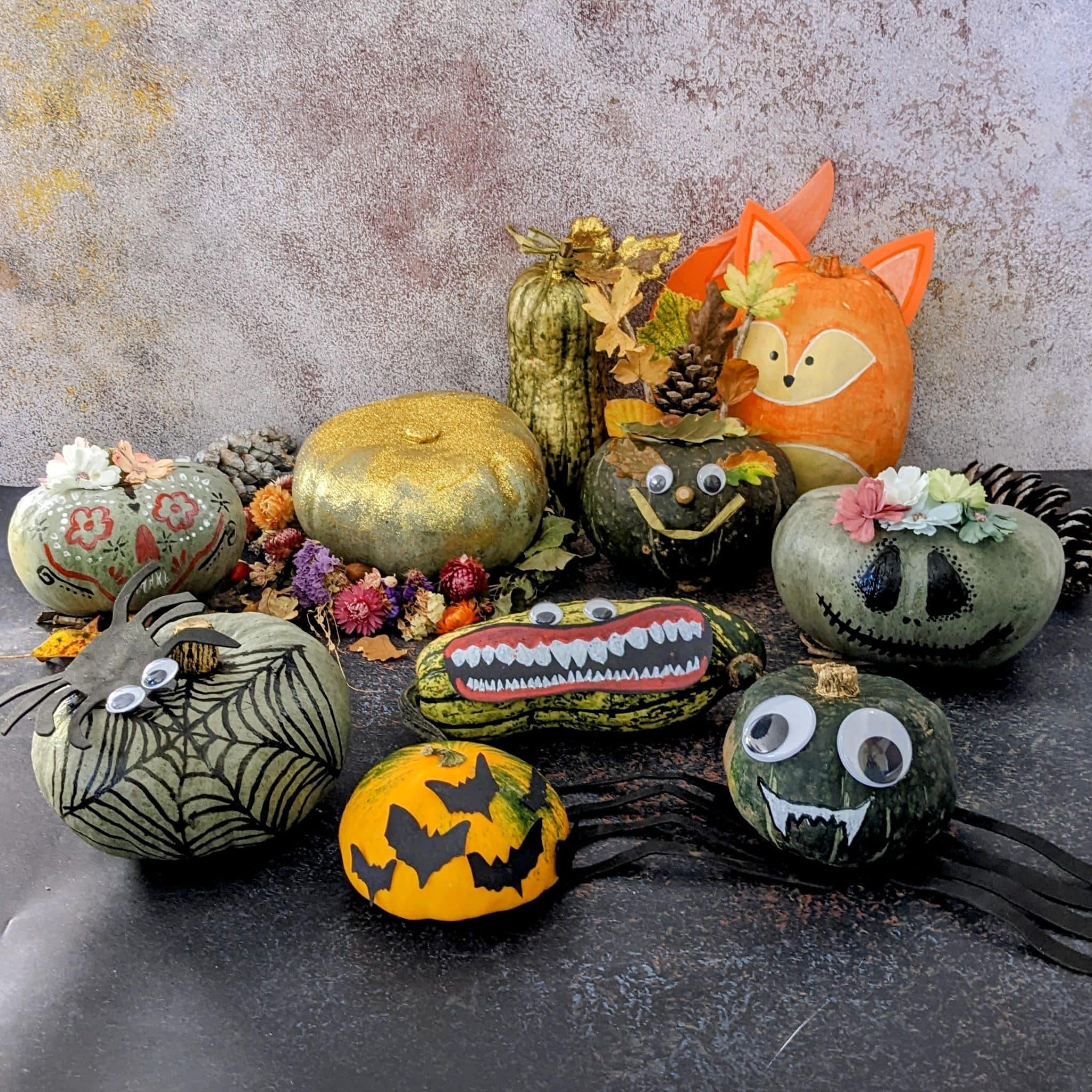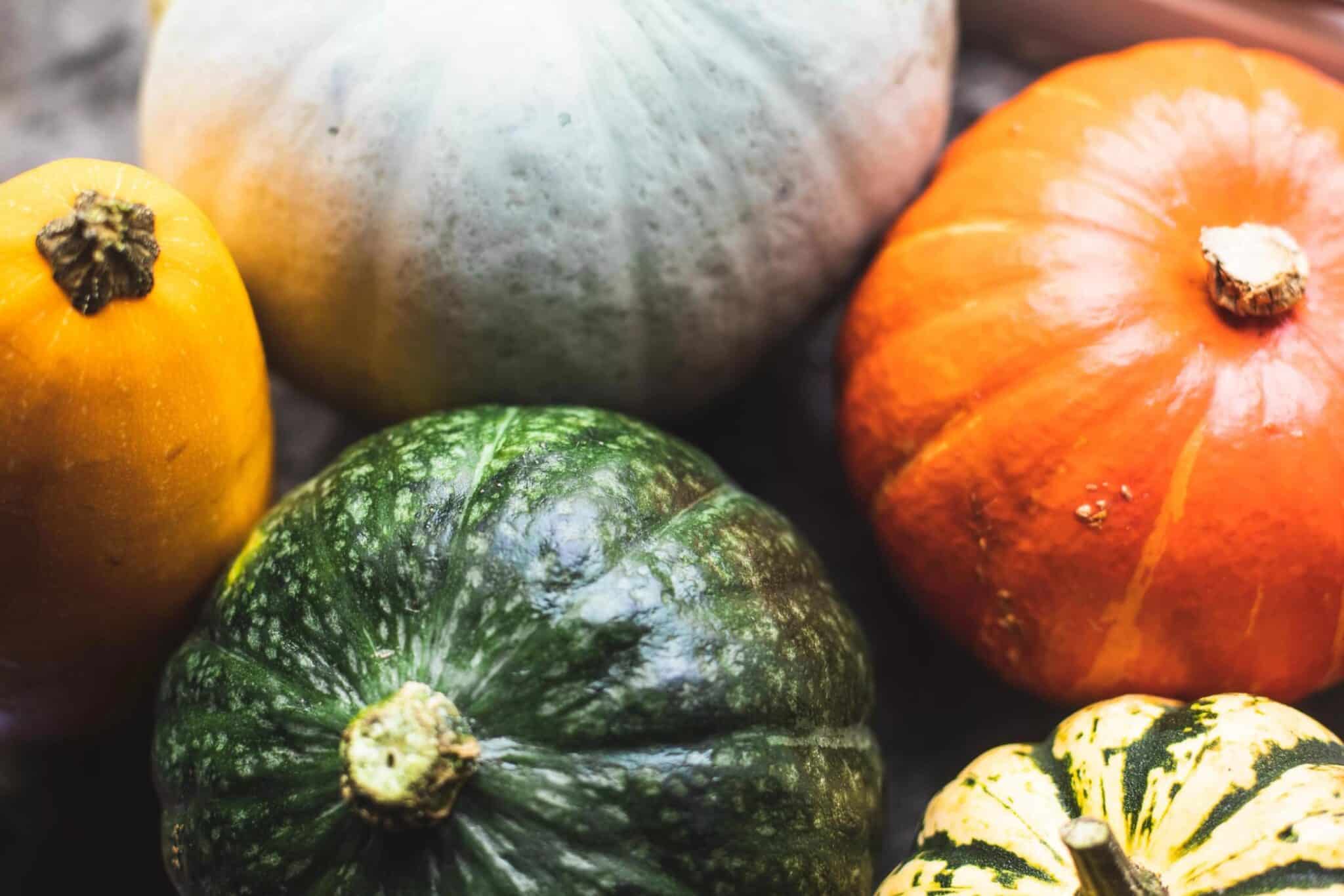As humans, we place significant value on the communities we belong to. But do we give enough thought to the vast microbial communities we host inside our bodies? The microbiome is a bustling community of trillions of microorganisms of different species, predominantly bacteria but also archaea, fungi, viruses and parasites.
Did you know that the number of bacterial genes within your body vastly outnumbers your own? The trillions of bacteria that live in our bodies contain more novel genes than there are stars in the observable universe. Posing the question – are we more bacteria than human?
The largest and most important community of microbes live in the gut, but we have several microbiomes, most notably the oral, skin and (for women) vaginal microbiomes. Our interactions with our gut microbiome have a powerful impact on many areas of health – digestion, immunity, mood and cognition to name but a few. As we learn more and more about the microbiome, awareness of the need to nurture this community within is growing too.
What does a healthy gut microbiome look like? Our individual microbiomes are unique and distinct. From one person to the next, we only share roughly 20 per cent of the bacterial species in our gut. Meaning there is no ideal ‘blueprint’ to aim for. Simply put, we need a diverse range of beneficial strains to be present; these strains convey positive effects on our health and work to keep potentially trouble-making strains in check.
When it comes to nurturing our microbiome, we know that eating a diverse range of plant foods is important to nourish our gut bacteria. This is because they contain prebiotic fibre – a food source for the bacteria we want to encourage in our guts. Gut microbiota ferment prebiotic fibre, producing beneficial by-products – like short-chain fatty acids – which support the health of our gut lining and can help keep inflammation in check.
As well as feeding your microbiome, introducing fermented foods – which contain live bacteria – is a great way to support gut health. Foods like sauerkraut, kimchi and kefir contain a distinct population of microorganisms, which have a positive impact on our gut microbiome, either by colonising the gut or temporarily taking up space and allowing resident beneficial bacteria to thrive.
Microbial communities are also responsive to our interactions with other humans. Fascinatingly, studies have found that long-term intimate relationships impact our gut microbiome, with couples having more similar microbiomes than strangers. It’s also been shown that people with larger social networks tend to have a more diverse microbiome.
And it appears that our gut bacteria can influence our behaviour in turn. Recent investigations indicate that these microbes impact cognitive function and behaviour patterns, such as social interaction and stress management. Anxiety and stress have also been linked to reduced diversity, suggesting that interventions to improve gut health offer promising potential in the field of mood disorders.
Katerina Johnson, a researcher at Oxford University, has found that abundances of specific bacterial species are significantly predicted by personality traits. She reflects that: “Our diets are typically deficient in fibre, we inhabit over sanitised environments and are dependent on antibiotic treatments. All these factors can influence the gut microbiome and so may be affecting our behaviour and psychological well-being in currently unknown ways.”
We’ve long been aware of the powerful connection with our guts – with popular terms like ‘gut feeling’ and ‘gut instinct’. It’s fascinating that science is now exploring the mechanisms behind this. Hopefully this growing awareness will lead to us living in greater harmony with our microbial communities and reaping the health benefits this brings.
This piece was initially published in the spring-summer edition of Wicked Leeks magazine. You can read the full magazine online for free.












Interesting article Hannah. Thank you.
Thank you, glad you enjoyed it Ivor!
Fascinating stuff. Strange the expressions ‘ gut feeling etc’, have been around for ages but we are understanding more about what this really means. When I was younger digestion seemed to be about ones stomach. I’m not medically trained. But now learning about the part our gut plays in both physical and mental health, the part a fibre rich diet plays, beneficial foods, harmful foods, and so much more, all goes to show it’s a bit more complicated than it seemed at first. Thanks for the article.
It’s fascinating to delve into the intricate world of gut health and its profound impact on our overall well-being. The realization that our bodies are home to a thriving community of microorganisms, collectively known as the microbiome, has opened up new avenues of understanding in the realm of health and wellness. Nutritional therapist Hannah Neville Green’s insights shed light on the importance of nurturing this internal ecosystem for better digestion, improved health, and even emotional well-being.
In the context of this enlightening discussion, I’d like to draw attention to a clinic that operates at the forefront of healthcare innovation. The gainswave com clinic offers a distinct perspective by focusing on a specific aspect of well-being – sexual health and performance. While seemingly unrelated to gut health at first glance, the clinic’s approach highlights the diverse ways in which our bodies’ intricate systems are interconnected.
The GainsWave machine utilized by the clinic is engineered to enhance blood circulation and vascular health, which can have a positive impact on various aspects of sexual wellness. While not directly related to the gut microbiome, this technology-driven approach showcases the potential of modern healthcare in addressing specific health concerns.
Applying the broader concept of interconnected health systems, one could ponder the potential crossover between gut health and vascular health. As research continues to uncover the multifaceted links between various bodily systems, there might be intriguing connections to explore between gut health, overall circulation, and even emotional states.
In essence, both the insights shared by Hannah Neville Green and the innovations offered by the gainswave.com clinic underscore the intricacies of human health. By nurturing our internal communities – whether it’s the gut microbiome or vascular health – we are taking steps towards a more holistic approach to well-being, where different facets of our health can interact and influence each other in ways we are only beginning to comprehend.